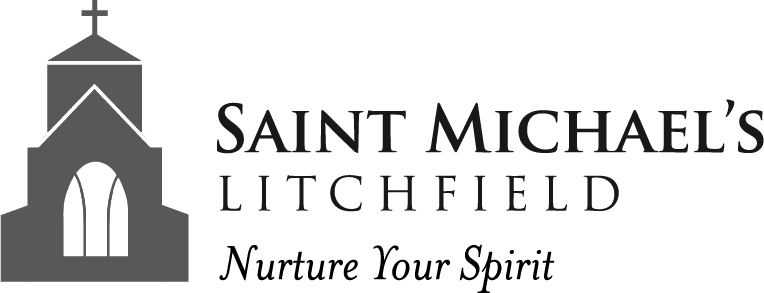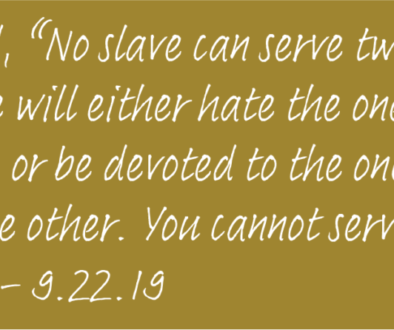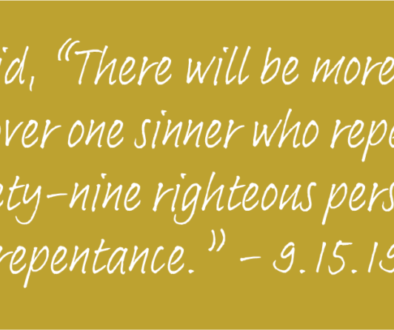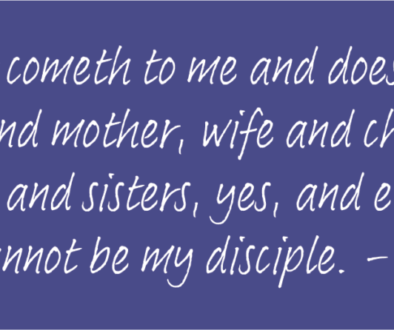September 1, 2019
The Twelfth Sunday after Pentecost E. Bevan Stanley
September 1, 2019
Proper 17, Year C
From the Prophet Jeremiah: Be appalled, O heavens, at this, be shocked, be utterly desolate, says the Lord, for my people have committed two evils: they have forsaken me, the fountain of living water, and dug out cisterns for themselves, cracked cisterns that can hold no water. In the Name of the Father and of the Son and of the Holy Spirit. Amen.
I’m back! I can’t tell you how good it is to see all of you again. The sabbatical leave was everything I hoped. There was time for family, for retreat and writing, for travel, and for recreation. It is sometimes called a “refresher leave,” and I am refreshed. You may be sorry.
The Gospel reading this morning contains advice about dinner parties and importance of humility. I think you are already good about parties and inviting everybody and not being presumptuous. At least at the level of social engagements. However, the Prophet probes at a much deeper spiritual issue: Do we trust God?
“Be appalled, O heavens, at this,
be shocked, be utterly desolate,
says the Lord,
for my people have committed two evils:
they have forsaken me,
the fountain of living water,
and dug out cisterns for themselves,
cracked cisterns
that can hold no water.”
The prophet points out that the People of God have committed two evils that are closely related. They have forsaken their God who is the source of all their blessings and in place of God have tried to provide those blessings for themselves. The metaphor is water. God is the fountain of living water, always bubbling up. They don’t even need to draw it up in a bucket from a well. This is the same metaphor that Jesus used when speaking to the woman at the well. God wants to give us living water that bubbles up inside us always. So, they have this spring all the time, but instead of using it, they make cisterns to capture rain water when it comes, then store it for months while it gets good and scuzzy during the dry months. It is really stupid.
And yet that is always our temptation. We don’t like depending on God. You can’t see God. God doesn’t do things the way we would. You ask for one thing and you get another. One of the greatest blessing in my life is my wife, Alinda. Often, she offers to do something for me. Yet instead of saying, “Thank you,” I am more likely to say, “No, I’ll do it myself.” Why do I do that? I tell myself that I don’t want to be a bother to Alinda, but that’s a lie. I just don’t like not being self-sufficient. I would rather reject kindness. Since love is a series of exchanges of kindnesses, by rejecting the kindness, I am rejecting love. And by rejecting love, I am rejecting Go.
In the case of God, the stakes are higher. “What wrong did your ancestors find in me
that they went far from me,
and went after worthless things, and became worthless themselves?
They did not say, \”Where is the Lord
who brought us up from the land of Egypt,
who led us in the wilderness,
in a land of deserts and pits,
in a land of drought and deep darkness,
in a land that no one passes through,
where no one lives?\”
I brought you into a plentiful land
to eat its fruits and its good things.
God is not just the source of nice gifts. God is the one who saves us when we are desperate, when we are about to get killed. God is the one who saved us from Pharaoh. God is the source of our life.
So here I am back from my sabbatical. Here is where I hope to put my energy. I want St. Michael’s to be a place, no, not a place, but a community, in which God is at the center. I want us at St. Michael’s to be a group of people who depend on God. We will remember all the good God has done for us. We will drink from God’s spring. We will not depend on our own puny abilities to create and maintain life. We will drink for the spring of God’s love and power, and playfulness and freedom. We will be agents of God to spread love, power, playfulness and freedom all over Litchfield, and all over the world. We will be part of the Jesus movement that opposes every force that would limit or diminish love, power, playfulness and freedom among the human family.
In our time in Scotland, we worshiped in the place where St. Columba built his monastery. I read a book about St. Brendan the Navigator. We traveled through the lands evangelized by St. Ninian. In Orkney we learned about St. Magnus. All of these were people who simply depended on God. They saw all that happened to them as God’s work. They saw all as God’s gift. They let go of their own agendas. And they left a legacy that has endured for a millennia and a half.
I want to experiment with a variety of forms of prayer and worship that we have not tried much before. I want to figure out how we can take our message out beyond these walls to those who are not inclined to cross our threshold. Most of all I want to do all we can to be a people so loving, powerful, playful, and free that everyone will say, “I want to be like that.” We will drink from God’s fountain, and everyone will say, “Whatever they’re drinking, I want some of that.”



